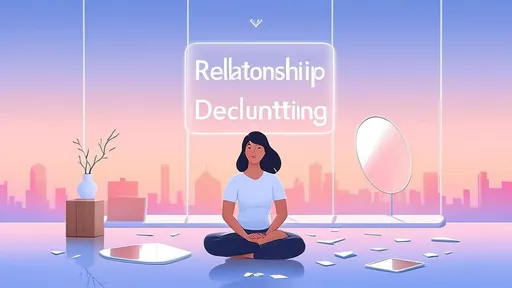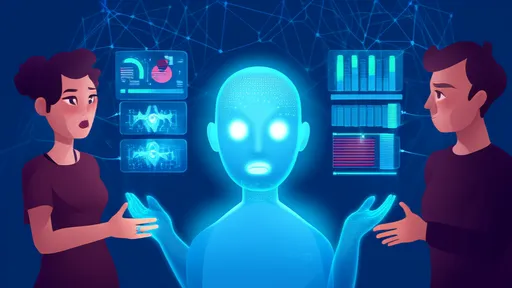The European Union is considering groundbreaking legislation that would prohibit the use of artificial intelligence to fully replace human beings in fulfilling family responsibilities. This proposed draft law, which has sparked intense debate among policymakers, ethicists, and tech companies, aims to preserve the irreplaceable role of human connection in domestic life.
According to sources familiar with the matter, the EU's legislative framework seeks to establish clear boundaries for AI applications in household settings. The draft explicitly targets systems designed to assume complete caregiving roles for children, elderly family members, or other dependents without meaningful human oversight or participation.
Ethical concerns about emotional deprivation form the cornerstone of this legislative initiative. Psychologists and child development experts have warned that over-reliance on artificial caregivers could have devastating consequences for emotional bonding and social development. "No algorithm can replicate the nuanced emotional intelligence required for proper human attachment," stated Dr. Elisa Monti, a leading researcher in developmental psychology at the University of Milan.
The proposed regulations would not ban AI assistance outright but would mandate that such technologies must serve in supportive rather than substitutive capacities. For instance, smart home devices could still help with scheduling or monitoring, but could not be programmed to make autonomous decisions about a child's emotional needs or an elderly parent's medical care without human verification.
Industry pushback has been immediate and vocal, with several major tech corporations arguing that the legislation could stifle innovation in assistive technologies. "We're not trying to replace parents or caregivers - we're trying to give them better tools," countered Markus Reinhold, CEO of Berlin-based AI firm HaushaltsHelfer GmbH. His company's controversial "NannyAI" prototype, which can theoretically provide 24/7 child supervision, would fall afoul of the new rules.
Legal scholars note that the draft legislation presents unique challenges in definition and enforcement. "Where exactly do we draw the line between assistance and replacement?" asked Professor Jean-Luc Moreau of the Sorbonne Law School. "If an AI system handles 80% of caregiving tasks but leaves 20% to humans, is that still considered replacement? These are thorny questions the legislation will need to address."
The economic implications could be significant for Europe's growing silver economy. With aging populations across the continent, demand for elder care solutions has skyrocketed. While the legislation wouldn't prohibit care robots entirely, it would require them to operate under strict human supervision protocols that some argue could make them economically unviable.
Parenting advocacy groups have largely welcomed the proposal. "Children need authentic human interaction for healthy development," said Sofia Karras, spokesperson for the European Parenting Network. "We've seen concerning trends where busy parents rely too heavily on digital babysitters. This legislation sends an important message about priorities."
Interestingly, the draft law includes provisions for public education about responsible AI use in domestic settings. This would involve EU-funded awareness campaigns and school curricula addressing the appropriate role of technology in family life - a preventive measure aimed at shaping cultural attitudes alongside regulatory frameworks.
Technologists working on human-AI interaction models suggest the legislation might actually spur more sophisticated development. "Instead of creating replacements, we'll need to focus on enhancement technologies that amplify human capabilities," noted Dr. Priya Chatterjee, lead researcher at the Copenhagen Institute of Technology. "This could lead to more thoughtful, ethical AI applications that truly serve families rather than attempt to supplant them."
The legislative process is expected to take at least eighteen months, with intense negotiations anticipated between member states. Northern European countries with advanced digital economies are predicted to push for more flexible regulations, while southern and eastern members likely will advocate for stricter human oversight requirements.
Consumer protection aspects of the draft have received less attention but could prove equally impactful. The legislation would mandate clear labeling of AI caregiving products and services, requiring companies to disclose exactly what functions are automated and what human involvement is necessary. This transparency measure aims to prevent misleading marketing of "fully autonomous" care systems.
As the debate continues, one thing appears certain: Europe is positioning itself at the forefront of establishing ethical boundaries for AI's role in society's most intimate spaces. The outcome of this legislative effort could set global precedents for how nations balance technological innovation with the preservation of fundamental human relationships.
Final language of the draft is expected to be released by the European Commission next quarter, after which it will begin its journey through the EU's complex legislative process. Stakeholders across multiple sectors are preparing for what promises to be one of the most consequential tech policy battles in recent memory.

By /Jul 28, 2025

By /Jul 28, 2025

By /Jul 28, 2025

By /Jul 28, 2025

By /Jul 28, 2025

By /Jul 28, 2025

By /Jul 28, 2025

By /Jul 28, 2025

By /Jul 28, 2025

By /Jul 28, 2025

By /Jul 28, 2025

By /Jul 28, 2025

By /Jul 28, 2025

By /Jul 28, 2025

By /Jul 28, 2025

By /Jul 28, 2025

By /Jul 28, 2025

By /Jul 28, 2025

By /Jul 28, 2025

By /Jul 28, 2025